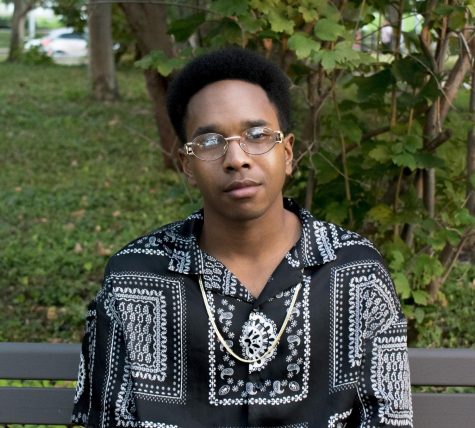Smith: Kanye vs. Taylor Swift
In a post-2009 MTV Video Music Awards environment, the relationship between Kanye West and Taylor Swift has been rocky to say the least, but has clearly defined roles. West is the villain, Swift is the victim.
That narrative has continued with nearly every interaction, and has found its way to West’s last album, “The Life of Pablo”, and his song “Famous.”
Making his true feelings known about the situation, West wrote “I feel like me and Taylor might still have sex/Why? I made that bitch famous.”
It seemed like yet another one of the ridiculous statements that have become commonplace for him in the past several years. Critics once again believed that he unfairly targeted Swift.
With the statement being so outrageous, and coming as a punchline in a song, delivered in a misogynistic, sexist manner, no one critically evaluated the possible role West has played in Swift’s career. For too long, we have viewed Swift as the victim and West as the aggressor.
These roles may be accurate, but what if West had a point? Albeit, a hyperbolic one.
West believes he “made that bitch famous,” but we know that Swift had a successful career before the two even met. He cannot take credit for her vocal ability, musical talent at a young age and other things that he simply has no power over. Swift developed these abilities as her career went forward.
However, once the two crossed paths at the 2009 VMAs, West played a key role in Swift’s career. His actions resulted in Swift’s increased popularity and a profitable image, not necessarily making her famous, but more famous.
At the 2009 VMAs, Swift claimed the award for best female music video, much to West’s dismay. As he snatched the microphone from her hands, he granted something that she could use throughout her career: victimhood.
Ever since, Swift has found herself in a lot of celebrity feuds, but still maintains the innocent girl image. She is never seen as the aggressor in any of these situations. Even when she is not releasing new music, her name stays in the headlines through some breakup or beef.
Before West, there were virtually no headlines about any feuds with Swift. If he hadn’t attempted to discredit the innocent newcomer in such an abrupt manner, then the perception of her as a perpetual victim would be weakened.
While Swift was popular enough to receive an award before the incident with West, her fame climbed to new heights after it. Not only did West’s interruption grant Swift the victim image, it also brought her music to a larger population.
“The Kanye incident brought attention to Taylor, to an audience that did not really know her or her music,” says Scott Borchetta, the president of Big Machine, the record label that puts out Swift’s music. “And when they did check it out, they discovered that they really liked it.”
After the interruption, Swift’s “Fearless” became the bestselling album of 2009, although it came out in 2008. The VMAs are not popular enough to induce such a response based on viewership of the program alone, but the media headlines dubbing Swift as the victim—and rightfully so—did the trick.
The perpetual controversy between the two gives West merit as well. The story never seems to fully disappear, but instead gain another chapter. After accepting the Grammy for Album of the Year, Swift took a jab at West during her acceptance speech, using it as a way to inspire young women and girls to pursue their dreams. Instead of letting the situation go, Swift and the media antagonized him yet again.
This year, it was revealed that West spoke with Taylor Swift before completing “Famous,” and an audio recording revealed that she ultimately gave him creative rights to write whatever he wanted. If West knew that Swift would use the approved lyrics as another story about being the victim, would he have still released them?
I believe so, because it just proved his point.
KJ is a third-year student who wants to make a difference in the city of Cleveland.

KJ is a fourth-year Pre-Law student and sociology major who also minors in psychology and English. He is a Cleveland native, a member of the Emerging Scholars...

